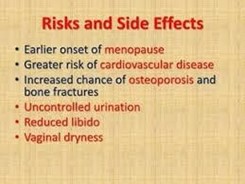A nurse is caring for a client who has Parkinson's disease and a new prescription for pramipexole. The nurse should monitor the client for which of the following findings as an adverse effect of this medication?
Diarrhea
Drowsiness
Tachypnea
Bradycardia
The Correct Answer is B
Choice A rationale:
Diarrhea is not commonly associated with pramipexole use.
Choice B rationale:
Drowsiness is a common adverse effect of pramipexole and can impair the client's ability to perform tasks that require alertness.
Choice C rationale:
Tachypnea (rapid breathing) is not typically associated with pramipexole use.
Choice D rationale:
Bradycardia (slow heart rate) is not a common adverse effect of pramipexole.
Nursing Test Bank
Naxlex Comprehensive Predictor Exams
Related Questions
Correct Answer is D
Explanation
Choice A rationale:
Weight loss is not typically an expected manifestation following a total abdominal hysterectomy.
Choice B rationale:
Increased libido is not necessarily an expected manifestation following a total abdominal hysterectomy.
Choice C rationale:
Decreased menstrual bleeding is expected, as the uterus has been removed.
Choice D rationale:
Vaginal dryness is an expected manifestation following a total abdominal hysterectomy due to the removal of the ovaries, which produce hormones that contribute to vaginal lubrication.

Correct Answer is C
Explanation
A: Expecting heavier menstrual bleeding while using the patch is not a typical instruction given to clients. The patch may actually result in lighter, more regular bleeding.
B: The patch should not be placed on the upper thigh. According to the guidelines, the patch should be applied to clean, dry skin on the belly, buttocks, or back, and can also be placed on the outer part of the upper arm.
C: Applying the first patch within 24 hours of starting the menstrual cycle is correct. This ensures that the patch begins to work in sync with the client's natural cycle, providing immediate contraceptive protection.
D: A new patch should not be applied at the same time each day. Instead, it should be changed once a week on the same day, known as the "patch change day" to maintain consistent contraceptive coverage.
Whether you are a student looking to ace your exams or a practicing nurse seeking to enhance your expertise , our nursing education contents will empower you with the confidence and competence to make a difference in the lives of patients and become a respected leader in the healthcare field.
Visit Naxlex, invest in your future and unlock endless possibilities with our unparalleled nursing education contents today
Report Wrong Answer on the Current Question
Do you disagree with the answer? If yes, what is your expected answer? Explain.
Kindly be descriptive with the issue you are facing.
